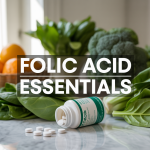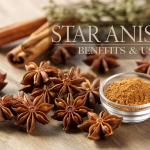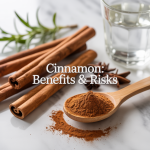Cranberry tea has gained popularity as a natural health drink, but like any herbal remedy, it comes with both benefits and potential drawbacks. This guide is for health-conscious individuals, tea enthusiasts, and anyone considering adding cranberry tea to their wellness routine who wants to make informed decisions about their consumption.
We’ll explore the proven health benefits of cranberry tea, including its nutritional compounds and how they support your body’s functions. You’ll also learn about potential side effects and important safety considerations, including when cranberry tea might interact with medications or cause unwanted reactions. Finally, we’ll cover practical guidelines for safe consumption so you can enjoy cranberry tea while minimizing any risks.
Health Benefits of Cranberry Tea
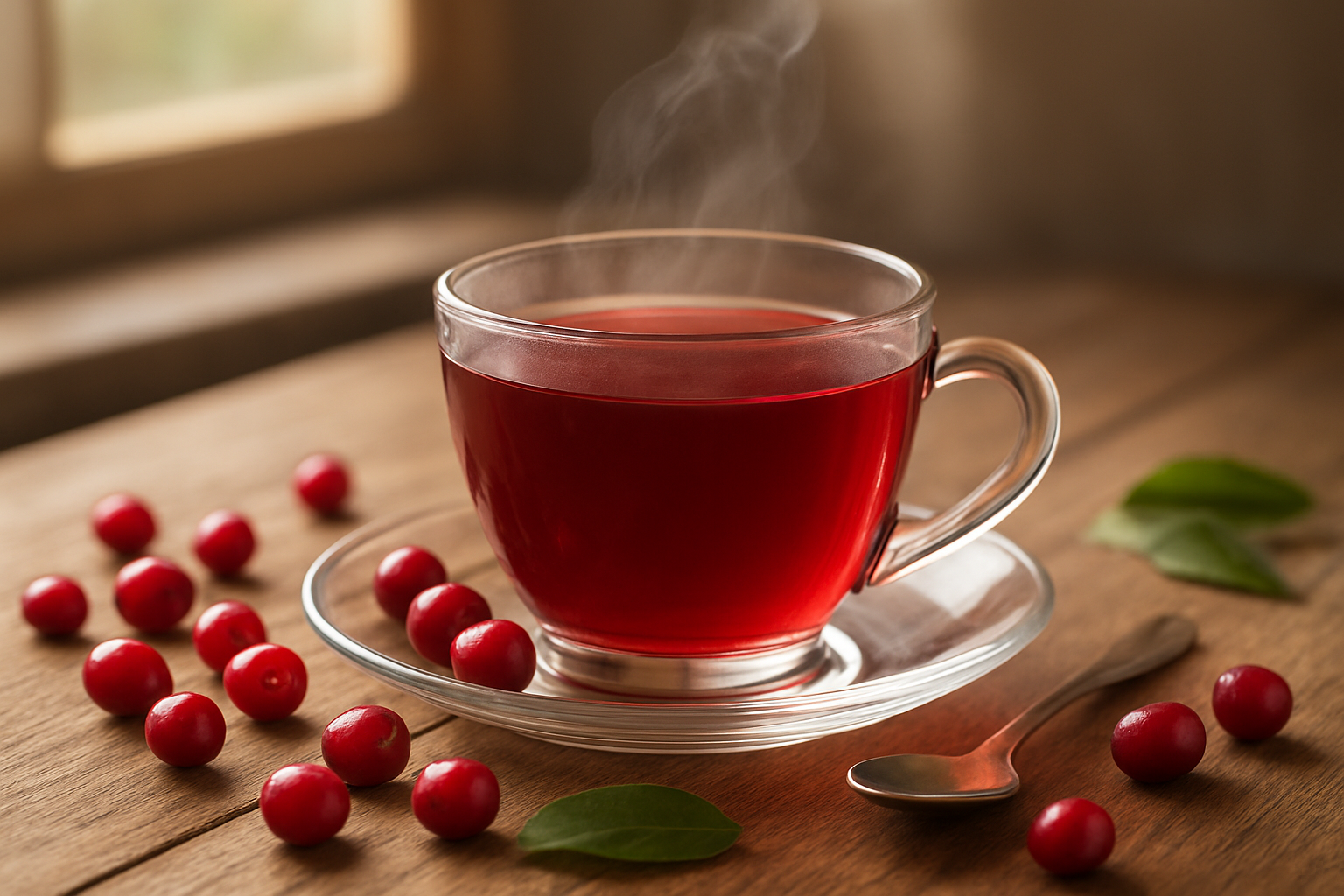
Supports urinary tract health and prevents infections
Cranberry tea works like a natural shield for your urinary tract. The magic happens thanks to compounds called proanthocyanidins (PACs), which prevent harmful bacteria from sticking to the walls of your urinary tract. Think of it like creating a slippery surface that bacteria just can’t grab onto.
Studies show that drinking cranberry tea regularly can reduce your risk of developing urinary tract infections by up to 35%. This benefit is especially valuable for women, who experience UTIs at much higher rates than men. The antibacterial properties in cranberry tea create an environment that’s hostile to E. coli and other common UTI-causing bacteria.
The best part? You don’t need massive amounts to see benefits. Just one to two cups of cranberry tea daily can help maintain healthy urinary tract function. Unlike sugary cranberry juices, the tea form delivers these protective compounds without excess calories or added sugars that could actually feed harmful bacteria.
Provides powerful antioxidants for immune system boost
Cranberry tea packs a serious antioxidant punch that rivals many superfoods. These antioxidants, including vitamin C, quercetin, and anthocyanins, work like your body’s personal cleanup crew, neutralizing harmful free radicals that can damage cells and weaken your immune system.
The vitamin C content in cranberry tea is particularly impressive. Just one cup provides about 15-20% of your daily vitamin C needs, supporting white blood cell production and helping your body fight off infections more effectively. The anthocyanins – the same compounds that give cranberries their deep red color – have been shown to enhance immune cell activity and reduce inflammation throughout the body.
Regular cranberry tea consumption helps build your body’s natural defense system over time. The antioxidants accumulate in your bloodstream, creating a protective barrier against seasonal illnesses and everyday toxins. People who drink cranberry tea regularly often report fewer colds and faster recovery times when they do get sick.
Promotes heart health and cardiovascular function
Your heart loves cranberry tea almost as much as you do. The flavonoids in cranberry tea help improve blood vessel function and reduce inflammation in your cardiovascular system. These compounds work to relax blood vessels, allowing blood to flow more smoothly and reducing strain on your heart.
Research shows that cranberry consumption can help lower LDL (bad) cholesterol levels while maintaining or even increasing HDL (good) cholesterol. The polyphenols in cranberry tea also help prevent the oxidation of cholesterol, which is a key step in the development of artery-clogging plaque.
Blood pressure benefits are another major plus. The potassium in cranberry tea helps balance sodium levels, while the antioxidants support healthy blood vessel walls. People who drink cranberry tea regularly often see modest but meaningful improvements in their blood pressure readings.
The anti-inflammatory effects extend to your entire circulatory system, reducing markers of inflammation that contribute to heart disease risk. This makes cranberry tea a simple, enjoyable way to support long-term cardiovascular health.
Aids in digestive health and reduces inflammation
Cranberry tea acts like a gentle tonic for your digestive system. The natural acids and compounds in cranberries help create an environment in your gut that supports beneficial bacteria while discouraging harmful microorganisms. This balance is crucial for optimal digestion and overall gut health.
The anti-inflammatory properties of cranberry tea extend throughout your digestive tract. These compounds help soothe irritated intestinal walls and may reduce symptoms associated with inflammatory bowel conditions. The tannins in cranberry tea also provide astringent properties that can help tighten and tone digestive tissues.
Cranberry tea supports healthy stomach acid production, which is essential for proper protein digestion and nutrient absorption. Unlike coffee or other acidic beverages that can sometimes irritate sensitive stomachs, cranberry tea tends to be gentler while still providing digestive benefits.
The prebiotic compounds in cranberry tea feed your beneficial gut bacteria, helping them thrive and multiply. This creates a positive cycle where your gut microbiome becomes stronger and more diverse, leading to better overall digestive function and even improved mood and immune response.
Nutritional Value and Active Compounds

Key Vitamins and Minerals Found in Cranberry Tea
Cranberry tea provides a concentrated source of several essential nutrients without the added sugars found in many commercial beverages. Vitamin C stands out as the primary vitamin in cranberry tea, delivering approximately 15-20% of the daily recommended intake per cup. This powerful antioxidant supports immune function and helps your body absorb iron more effectively.
The mineral profile includes manganese, which plays a crucial role in bone health and metabolism. A single serving typically contains around 10-15% of your daily manganese needs. Cranberry tea also provides modest amounts of vitamin E, another antioxidant that protects cell membranes from damage, and vitamin K, essential for proper blood clotting and bone metabolism.
| Nutrient | Amount per Cup | % Daily Value |
|---|---|---|
| Vitamin C | 12-16 mg | 15-20% |
| Manganese | 0.2-0.3 mg | 10-15% |
| Vitamin E | 1-2 mg | 5-8% |
| Vitamin K | 3-5 mcg | 3-5% |
Proanthocyanidins and Their Therapeutic Effects
Proanthocyanidins represent the star compounds in cranberry tea, giving the beverage its distinctive therapeutic properties. These polyphenolic compounds belong to a class of flavonoids known for their powerful antioxidant activity, which exceeds that of vitamins C and E by several fold.
Type A proanthocyanidins, unique to cranberries, create an anti-adhesion effect that prevents harmful bacteria from sticking to the walls of the urinary tract. This mechanism explains cranberry tea’s reputation for supporting urinary health. Research shows these compounds remain active even after the brewing process, though concentrations may vary depending on steeping time and temperature.
Beyond urinary health, proanthocyanidins demonstrate anti-inflammatory properties that may benefit cardiovascular health. They help reduce oxidative stress in blood vessels and may improve overall circulation. Studies suggest these compounds can also support oral health by preventing bacterial adhesion in the mouth, potentially reducing plaque formation and gum inflammation.
The bioavailability of proanthocyanidins from tea appears higher than from whole cranberries, as the brewing process helps break down cellular structures and releases these beneficial compounds more readily.
Low Calorie Content Compared to Cranberry Juice
Cranberry tea offers significant caloric advantages over traditional cranberry juice while maintaining many of the fruit’s beneficial properties. A typical 8-ounce cup of unsweetened cranberry tea contains fewer than 5 calories, compared to 110-140 calories in the same amount of cranberry juice cocktail.
This dramatic difference stems from the absence of natural fruit sugars and added sweeteners commonly found in commercial cranberry products. Pure cranberry juice, even without added sugars, contains approximately 30 grams of naturally occurring sugars per cup, while cranberry tea extracts primarily the beneficial compounds without the concentrated fruit sugars.
| Beverage Type | Calories per 8 oz | Sugar Content | Key Benefits |
|---|---|---|---|
| Cranberry Tea | 2-5 | 0-1g | Low calorie, concentrated antioxidants |
| 100% Cranberry Juice | 115 | 30g | High vitamin C, natural sugars |
| Cranberry Juice Cocktail | 135 | 34g | Sweetened, diluted benefits |
This makes cranberry tea an excellent choice for people managing blood sugar levels, following low-carbohydrate diets, or simply looking to reduce their overall caloric intake while still receiving cranberry’s health benefits. The absence of sugars also eliminates concerns about tooth enamel erosion associated with acidic fruit juices.
Potential Side Effects and Health Risks
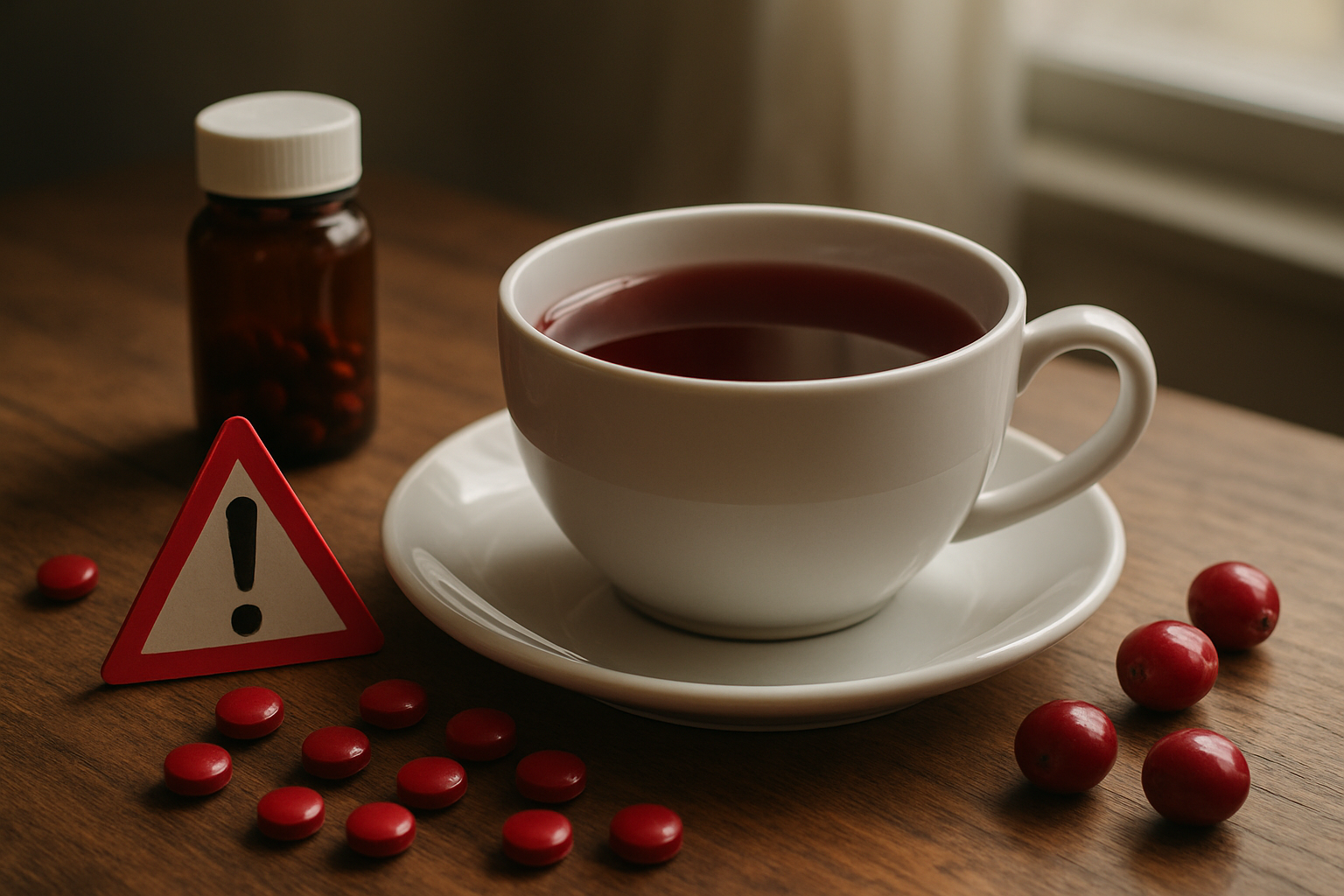
Blood thinning interactions with medications
Cranberry tea contains natural compounds that can amplify the effects of blood-thinning medications, particularly warfarin and other anticoagulants. The proanthocyanidins in cranberries may interfere with how your liver processes these medications, potentially leading to excessive bleeding or bruising. If you’re taking prescription blood thinners, even small amounts of cranberry tea could throw off your carefully balanced medication levels.
People on warfarin therapy should be especially cautious, as studies have documented cases where cranberry consumption led to dangerous increases in bleeding time. Your doctor will likely recommend avoiding cranberry products entirely if you’re on anticoagulant therapy, or they may need to adjust your medication dosage and monitor your blood levels more frequently.
Increased risk of kidney stones in susceptible individuals
Regular consumption of cranberry tea can backfire for people prone to kidney stones. While cranberries are often praised for urinary tract health, they’re naturally high in oxalates – compounds that can bind with calcium to form painful kidney stones. If you’ve had calcium oxalate stones before, cranberry tea might increase your risk of developing new ones.
The concentration of oxalates varies depending on how the tea is prepared and how strong you make it. People with a personal or family history of kidney stones should limit their cranberry tea intake or avoid it completely. Staying well-hydrated when consuming cranberry products can help dilute these compounds, but it doesn’t eliminate the risk entirely.
Gastrointestinal upset and stomach irritation
Cranberry tea’s natural acidity can trigger digestive problems in sensitive individuals. The tannins and organic acids that give cranberries their tart flavor can irritate your stomach lining, especially when consumed on an empty stomach or in large quantities. Common symptoms include nausea, stomach pain, heartburn, and general digestive discomfort.
People with existing digestive conditions like gastritis, peptic ulcers, or acid reflux may find that cranberry tea worsens their symptoms. The acidic nature of the beverage can increase stomach acid production, leading to burning sensations and digestive upset. Starting with small amounts and drinking it with food can help minimize these effects.
Blood sugar fluctuations in diabetic patients
Cranberry tea can cause unpredictable changes in blood sugar levels, which poses risks for people managing diabetes. While unsweetened cranberry tea is naturally low in sugar, it can still affect glucose metabolism in ways that aren’t fully predictable. Some people experience blood sugar spikes, while others may see unexpected drops.
The polyphenols in cranberries can influence how your body processes glucose and responds to insulin. This interaction becomes more complex if you’re taking diabetes medications, as the combination could lead to hypoglycemia or make it harder to maintain stable blood sugar levels. Diabetic individuals should monitor their glucose levels closely when introducing cranberry tea into their routine.
Allergic reactions and sensitivity symptoms
Though uncommon, allergic reactions to cranberry tea can range from mild to severe. Symptoms typically include skin reactions like hives, itching, or rash, but some people may experience respiratory symptoms such as difficulty breathing or throat tightness. In rare cases, severe allergic reactions requiring immediate medical attention can occur.
Cross-reactivity with other berries is possible, so people with known allergies to blueberries, strawberries, or other members of the berry family should approach cranberry tea with caution. Even if you’ve consumed cranberry juice or fresh cranberries without problems, concentrated tea preparations might trigger reactions due to higher concentrations of allergenic compounds.
Safe Consumption Guidelines and Best Practices
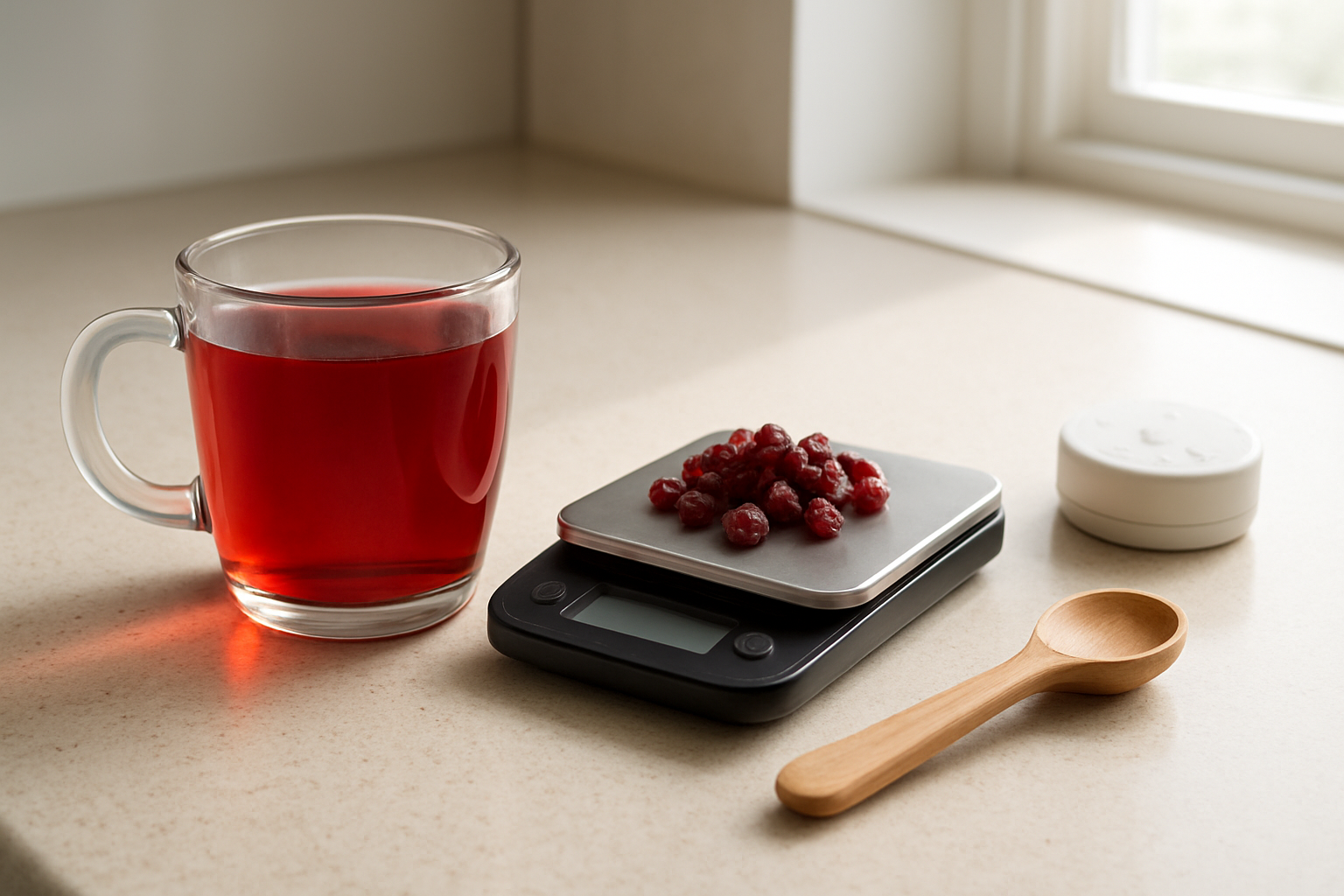
Recommended daily intake amounts for optimal benefits
Most health experts suggest consuming 1-2 cups of cranberry tea daily to gain the maximum health benefits without experiencing adverse effects. This amount provides approximately 240-480mg of cranberry compounds, which sits comfortably within the therapeutic range while minimizing potential digestive discomfort.
For urinary tract health specifically, drinking 8-16 ounces daily appears most effective. People dealing with recurrent UTIs often benefit from splitting this into two servings – one cup in the morning and another in the evening. However, individuals with a history of kidney stones should limit intake to no more than one cup daily due to cranberry’s oxalate content.
Pregnant women can safely enjoy 1 cup daily, but breastfeeding mothers should consult their healthcare provider before regular consumption. Children over 12 can drink diluted cranberry tea – about half the adult recommended amount mixed with additional water.
Timing considerations for maximum effectiveness
The timing of cranberry tea consumption can significantly impact its effectiveness. Drinking it on an empty stomach, roughly 30-60 minutes before meals, allows for better absorption of the beneficial compounds, particularly proanthocyanidins.
For urinary tract benefits, evening consumption proves particularly valuable. Drinking cranberry tea 2-3 hours before bedtime gives the active compounds time to work through your system overnight when urine concentration is highest.
If you’re taking cranberry tea for digestive support, consuming it 20-30 minutes after meals helps reduce potential stomach irritation while still providing anti-inflammatory benefits. People prone to acid reflux should avoid drinking it on an empty stomach and instead pair it with light snacks.
Athletes and active individuals often see better antioxidant benefits when consuming cranberry tea within 30 minutes post-workout, when the body’s absorption rates are naturally elevated.
Quality selection criteria for tea products
Choosing high-quality cranberry tea makes a substantial difference in both safety and effectiveness. Look for products that list “100% cranberry” or “pure cranberry leaves” as the primary ingredient, avoiding blends with excessive fillers or artificial additives.
Organic certification ensures the tea is free from harmful pesticides and chemicals that could counteract health benefits. Check for third-party testing certifications, which verify the product’s purity and potency levels.
| Quality Indicator | What to Look For | What to Avoid |
|---|---|---|
| Ingredients | Pure cranberry, minimal additives | High sugar content, artificial flavors |
| Packaging | Airtight, light-resistant containers | Clear plastic, damaged seals |
| Source | Reputable brands with transparency | Unknown manufacturers, vague labeling |
| Processing | Freeze-dried or air-dried methods | Over-processed, heavily refined |
Fresh, high-quality cranberry tea should have a deep red color when brewed and a tart, slightly astringent taste. Avoid products with added sugars, high fructose corn syrup, or excessive preservatives, as these can diminish the tea’s natural benefits and potentially cause unwanted side effects.
Storage plays a crucial role in maintaining quality. Keep tea bags or loose leaf varieties in cool, dry places away from direct sunlight. Properly stored cranberry tea maintains its potency for 18-24 months, but always check expiration dates before consumption.
Drug Interactions and Medical Precautions
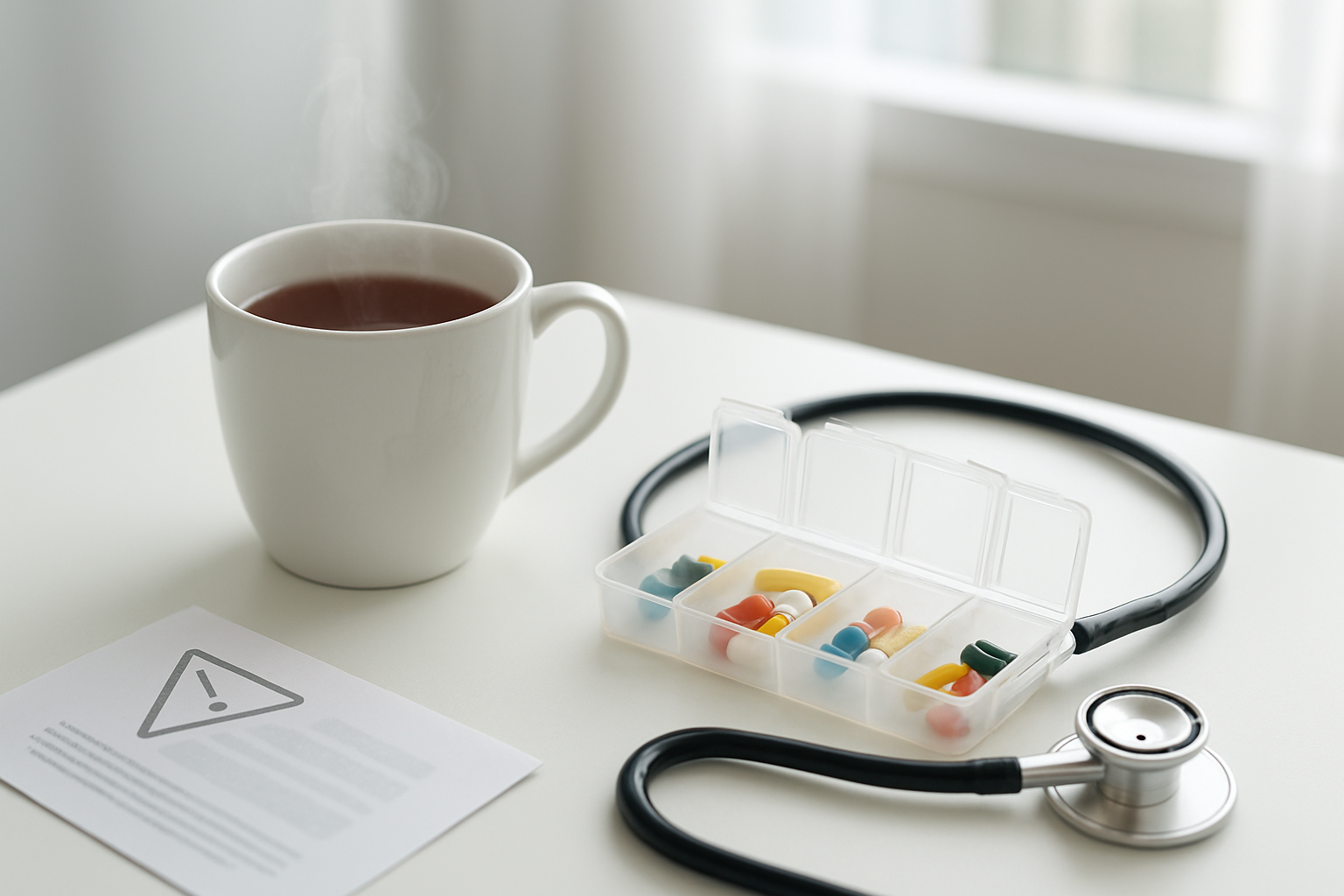
Warfarin and Other Blood Thinning Medications
Cranberry tea poses significant interaction risks with warfarin (Coumadin) and other blood-thinning medications. The compounds in cranberries, particularly flavonoids and salicylic acid, can enhance the anticoagulant effects of these drugs, potentially leading to dangerous bleeding episodes. Clinical case reports have documented instances where regular cranberry consumption caused dramatic increases in INR (International Normalized Ratio) levels, the standard measure for blood clotting time.
The interaction mechanism involves cranberry’s ability to inhibit cytochrome P450 enzymes in the liver, specifically CYP2C9, which metabolizes warfarin. When these enzymes are blocked, warfarin remains active in the body for longer periods, amplifying its blood-thinning effects beyond safe therapeutic ranges.
Patients taking anticoagulants should avoid cranberry tea entirely or consume it only under strict medical supervision with frequent INR monitoring. Other blood thinners that may interact include:
- Heparin and low molecular weight heparins
- Direct oral anticoagulants (DOACs) like rivaroxaban and apixaban
- Antiplatelet medications such as clopidogrel and aspirin
Even small amounts of cranberry tea consumed regularly can trigger these interactions, making occasional consumption unpredictable and potentially hazardous.
Consultation Requirements for Pregnant and Nursing Women
Pregnant and breastfeeding women should consult healthcare providers before incorporating cranberry tea into their routine. While cranberries are generally safe as food, concentrated forms like tea may deliver higher levels of active compounds that haven’t been thoroughly studied in pregnancy.
During pregnancy, cranberry tea’s potential to affect blood sugar levels and interact with prenatal vitamins requires medical evaluation. Some pregnant women use cranberry products to prevent urinary tract infections, but the appropriate dosage and safety profile during different trimesters remain unclear.
Nursing mothers face additional considerations since cranberry compounds can pass into breast milk. The effects on nursing infants are unknown, and some components might cause digestive upset or allergic reactions in sensitive babies.
Medical consultation becomes essential when pregnant or nursing women have:
- History of kidney stones or kidney disease
- Gestational diabetes or blood sugar concerns
- Previous pregnancy complications
- Concurrent medication use
Healthcare providers can assess individual risk factors and provide personalized guidance on whether cranberry tea consumption is appropriate during these critical periods.
Considerations for Individuals with Chronic Health Conditions
People with chronic health conditions require careful evaluation before adding cranberry tea to their wellness routine. Diabetics face particular concerns since cranberry tea can affect blood glucose levels, potentially interfering with medication effectiveness or glucose monitoring accuracy.
Kidney disease patients should exercise extreme caution due to cranberry’s oxalate content, which can contribute to kidney stone formation in susceptible individuals. Those with chronic kidney disease may have impaired ability to process and eliminate cranberry compounds, leading to accumulation and potential toxicity.
Cardiovascular disease patients need medical guidance, especially those taking multiple medications. Cranberry tea’s interaction with heart medications, blood pressure drugs, and cholesterol-lowering agents can create unpredictable effects on cardiovascular health.
Gastrointestinal conditions require special attention:
| Condition | Primary Concern | Recommendation |
|---|---|---|
| GERD/Acid Reflux | Increased stomach acid | Monitor symptoms closely |
| IBS | Digestive irritation | Start with small amounts |
| Inflammatory Bowel Disease | Potential flare triggers | Medical supervision advised |
Autoimmune disease patients should consider cranberry tea’s immune-modulating effects, which might interfere with immunosuppressive treatments or trigger inflammatory responses. Regular monitoring and healthcare provider communication ensure safe consumption while managing these complex health conditions.

Cranberry tea offers a refreshing way to boost your health with its powerful antioxidants and compounds that support urinary tract health and overall wellness. The tea’s natural nutrients can help fight inflammation and provide vitamin C, making it a smart addition to most people’s daily routine. However, like any natural remedy, it’s not right for everyone and can interact with certain medications, especially blood thinners.
Before making cranberry tea a regular part of your day, talk with your doctor if you take any medications or have existing health conditions. Start with small amounts to see how your body responds, and remember that moderation is key. When enjoyed safely and responsibly, cranberry tea can be a delicious and beneficial drink that supports your health goals without replacing proper medical care.



